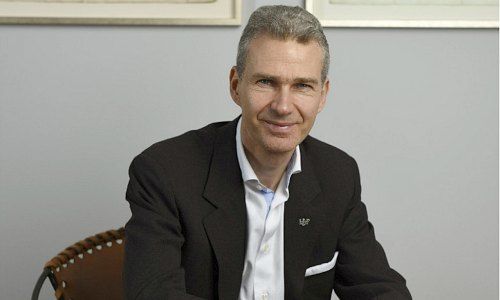While wealth and capital flow relatively freely across borders, its owners are tied to a nationality. finews.com meets the controversial «passport king» who can help.
Knight Frank's most recent «Wealth Report» is music to the ears of Christian Kaelin, chairman of Henley & Partners. The report details how billions of private money is moved annually to haven currencies and jurisdictions, offshore centers, tax havens, or countries that offer little more than a passport.
Thirty-six percent of the super-rich – families or individuals with more than $50 million – already own a second passport, while 26 percent want to leave their home country permanently, according to Knight Frank. This means big business for advisers, family office services, tax lawyers – and Kaelin.
«Essential» for Complex Ties
He is the so-called «passport king» or Mr. Citizenship: Zurich-based Henley & Partners' more than 300 employees arrange passports for scores of super-rich clients. Henley has arranged passports for countries as disparate as Austria, Vanuatu, Portugal, Grenada, Cambodia, and New Zealand, but also drawn enormous controversy.
The passport business is estimated at $25 billion – and rising. Henley & Partners is the largest of a coterie of firms offering so-called citizenship by investment. «It is essential for very wealthy individuals with complex business relationships to have a second citizenship and passport,» Kaelin told finews.com.
Instability Feeder
Not for tax reasons, the Swiss lawyer argues: Henley's clients predominantly still pay their taxes where they live. Instead, a second passport translates to freedom of movement – for example, freely within the European Union.
A second passport also translates to a sense of security. Traveling with the «wrong» nationality is frequently risky: Britons and Americans were sifted out by their nationality and targeted in terror attacks in Mumbai more than 11 years ago, for example.
Private Banker Concerns
Other situations are less drastic but nevertheless perilous for private money: government changes, political movements, or generally unstable countries. Kaelin mentions South Africa, where he says demand for second passports is currently very high.
«The situation is countries with major political uncertainty and instability are a concern especially for Swiss private bankers,» Kaelin said. «Their clients might see their freedom to travel simply eliminated, which engenders their ability to get at their funds.»
Papers for Money
Henley & Partners is among a host of businesses like tax and law services that accompany traditional wealth management services. The company's revenue isn't public, but is estimated at north of $5 million.
Henley's «citizenship by investment» services have been criticized by the European Union and the Organization for Economic Cooperation and Development: the schemes typically offer passports in exchange for a real estate or business investment.
Rigid Evaluation
Kaelin dismisses accusations that «passporting» is a helper to tax evasion, crime, and money laundering: Henley's clients are chosen very carefully, he argues. «Our process is very similar to that of a private bank when dealing with so-called PEPs or politically exposed persons,» Kaelin said. «As a result, we reject numerous potential clients as a result of their exposure and reputation.»
The company's business model and those of competitors like Arton Capital, CS Global, or big-four consulting firms links up potential supply and demand for passports: Kaelin advises governments, designs citizenship programs, then places the passports. The cost of new papers ranges from several hundred thousand to the double-digit million investment required for an Austrian passport.
Economic Kickstart
Kaelin concedes that Henley's services are mostly for the ultra-rich, but argues that so-called investment migration is an effective tool for structurally feeble countries to attract foreign direct investment and kickstart their economies.
The 48-year-old admits that citizenship programs are attractive for those with a troubling reputation: Henley recently denied press reports that is had organized another passport for Jho Low, who is sought by U.S. prosecutors in a $4.5 billion Malaysian graft probe.
Maltese Scandal
But Henley has drawn the most severe scrutiny for its business in Malta, which has reaped billions since 2013 for providing passports to super-rich Russians, Pakistanis and Saudi Arabians. Journalist Daphne Caruana was killed by a car bomb in 2017. She was also criticizing the Maltese government and citizenship by investment programs.
This autumn, investigations into her murder revealed ties between a prominent businessman allegedly involved in her murder and government ministers and senior officials. Prime Minister Joseph Muscat said he will step down early next year as a result.
According to Kaelin, «The current developments are very unfortunate and couldn't have been predicted. Our citizenship program in Malta was always subject to our existing internal controls.»


































